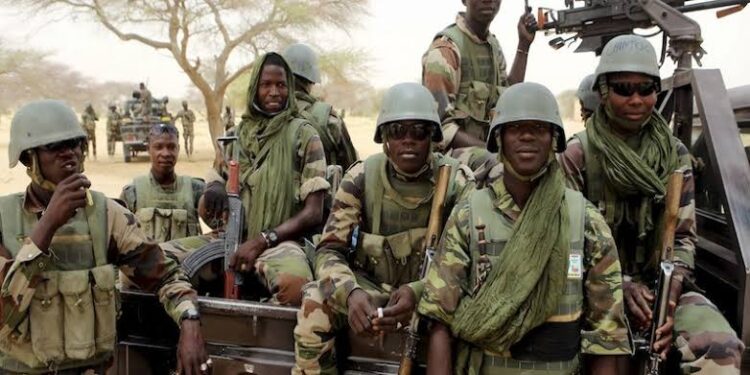By Emmanuel Nduka
Nigeria late Monday confirmed the withdrawal of Niger forces from the Multinational Joint Task Force (MNJTF).
The regional coalition was formed in 2015 to combat insurgent groups such as Boko Haram and the Islamic State West Africa Province (ISWAP) around the Lake Chad region.
“Despite the efforts of the CDS Gen Musa Gwabin through military diplomacy UNFORTUNATELY….NIGER HAS OFFICIALLY PULLED OUT ON THE MULTI NATIONAL JOINT TASK FORCE MNJF,” Group Captain Shehu Sadiq (rdt) told journalists in Abuja, Nigeria’s capital, late on Monday.
Earlier, Niger made the announcement on state television, reflecting Niger’s shift in priorities toward securing its oil infrastructure, particularly a vital pipeline to Benin that has become a frequent target for jihadist attacks.
The move marks a significant change in Niger’s security strategy, prompting concerns about the future of the coalition, which previously included Cameroon, Chad, Niger, and Nigeria.
Following Niger’s withdrawal, the MNJTF operation will now be known as “Nalewa Dole.” The MNJTF, which has been instrumental in tackling the insurgency since 2015, has been critical in addressing the Boko Haram conflict, which has resulted in over 40,000 deaths and displaced millions of people across the Lake Chad Basin.
The conflict has created one of the world’s worst humanitarian crises, with violence spilling across borders.
Niger’s exit comes amid heightened tensions in the region, particularly after the 2023 military coup in Niger. The country’s junta accused Nigeria of supporting foreign forces destabilizing the nation, a claim that Nigeria has denied. Despite talks between military leaders of both countries in September 2024, relations remain strained, and Niger’s departure from the MNJTF signals a shift toward a more independent security approach.
The governor of Niger’s Diffa region, General Ibrahim Bagadoma, criticized the lack of unity at a regional summit in February, suggesting that foreign interference and divisions within the region were undermining efforts to tackle the insurgency. Niger’s decision to redirect its resources to protect its oil infrastructure is seen as a pragmatic response to ongoing security threats. However, it also signals growing fragmentation in regional counter-terrorism efforts.
In addition to withdrawing from the MNJTF, Niger has joined Burkina Faso and Mali in the newly-formed Alliance of Sahel States (AES), aimed at countering terrorism within their own territories. The AES, which plans to deploy a joint force of 5,000 troops, could further divide the region’s military resources, complicating the broader fight against Islamist insurgencies in the Lake Chad area.
Niger’s exit from the MNJTF, coupled with Chad’s previous threats to withdraw and the formation of the AES, highlights the increasing fragmentation of efforts to combat terrorism in the region.


































